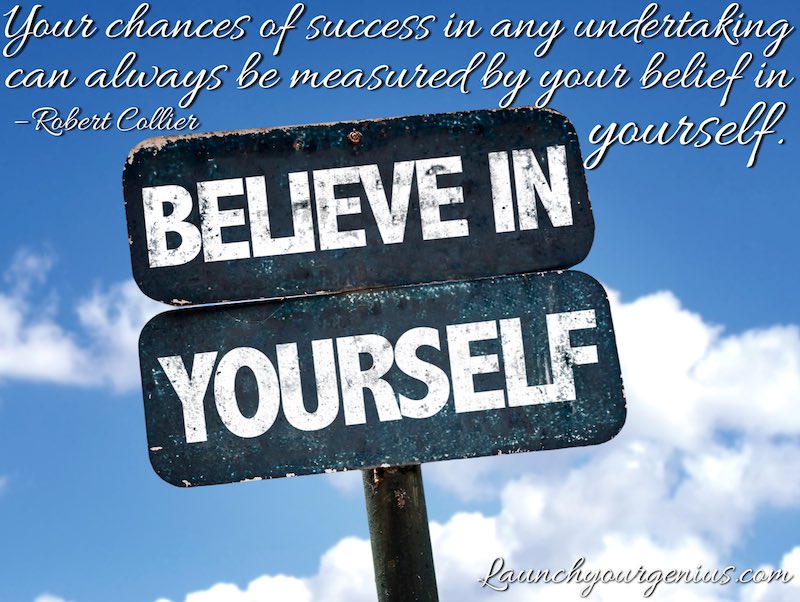
“To trust one’s mind and to know that one is worthy of happiness is the essence of self-esteem.” – Nathaniel Branden
This is part-2 of the 3-part series on self-esteem. Here is part-1 if you missed it.
Let us dive in!
10. Keeping Company And Not Calling Out People Who are Putting You Down
“My best friend is the one who brings out the best in me.” ―Henry Ford
I believe that self-esteem and confidence are a changing target. Sometimes we can feel great about ourselves. And other times not so much and we can struggle with esteem and confidence issues.
One of the most important determinants of our daily self-esteem comes with a choice. It is the choice that we have of maintaining the company that we are around.
A positive and uplifting circle does not mean that you surround yourself with “yes people.” You need honest and fearless opinions to make you grow. But often, the company that you are keeping might be pulling you down.
When you are ready to make changes to your life and realize that you deserve better company, your friends and family might resist the change.
It is best for us to realize these criticism and co-dependency structures that we build around our most close circles and company.
Thomas A. Harris wrote the classic psychology book, I’m OK-You’re OK. Harris outlines four different types of interactions with “I’m OK, You’re OK” being the most mutually beneficial relationship.
When our relationships go into the other three dynamics, it may be a call to examine these interactions further.
The interactions are:
I’m OK, You’re not OK.
I’m not OK, You are not OK.
I’m not OK, you’re OK.
Action Tips:
1. Identify the relationships that are putting you down. Talk gently but honestly to the other person involved that you deserve to be treated with more respect.
2. Ask what the other person expects from you and your behavior and why they resort to putting you down?
3. Meet those expectations or let go of any expectations from that person. Remember that you can improve your self-esteem. But that does not guarantee a particular pattern of behavior from others.
4. Realize and remember that a toxic relationship is a downer for your self-respect and your self-esteem.
11. Not connecting with Others And Feeling Isolated
“We’re miserable because we think that we are mere individuals, alone with our fears and flaws and resentment and mortality.” ― Elizabeth Gilbert, Eat, Pray, Love
One of the big pitfalls in the path to low self-esteem is a feeling of enhanced isolation.
Do you feel the following:
- I am all alone?
- No one understands me.
- I am painfully shy and awkward in social situations.
- I enjoy my own company so much that I avoid others and social situations as much as possible.
- No one can assist me and I need to do this assignment all alone.
- I do not trust anyone enough to delegate this important piece of work.
- In fact, I have a problem with all delegation and decide to do it ALL myself. That might mean that I am overworked and under a lot of stress all the time.
Action Tips:
1. You cannot do it all alone. You need to connect and combine ideas and efforts with others.
2. There is someone or some tribe out there that will understand your situation. It is simply a matter of looking.
3. Become more comfortable with delegating and allowing others to do some of your work. Look at the unique strengths that people bring to the table. Exchange tasks with them if you are better at something else.
4. Work on your social skills. It takes some effort but socializing and connecting with others is a huge boost to your self-esteem. It fact, humans are designed to be social creatures. We shrink and become depressed in isolation and thrive under the right social connections.
“If only you could sense how important you are to the lives of those you meet; how important you can be to people you may never even dream of. There is something of yourself that you leave at every meeting with another person.”– Fred Rogers
12. Outsourcing Your Happiness
“The tragedy is that so many people look for self-confidence and self-respect everywhere except within themselves, and so they fail in their search.” – Dr. Nathaniel Branden
There is no bigger dampener to self-esteem than to have to look for happiness and depend on it from the external world.
When you have an external focus of happiness or you only depend on others and things to feel happy, you have a problem.
The obvious problem with this approach is that we can never predict if we will have a good day or a bad one.
Some externalization is inevitable and normal. But, when we exclusively depend on others to make us happy, we have in effect outsourced our happiness and our self-esteem.
We are inadvertently and automatically telling to the world that we do not respect the self enough to have an internal locus of happiness and joy.
Action Tips:
1. Become aware of sourcing happiness only on external sources.
2. Understand what makes you happy and pursue it regardless of external conditions.
3. Look within for peace, joy and happiness. When you feel that you are sufficient and all right for the world, you receive a powerful boost of self-esteem and natural confidence.
13. Obsessing Over Things That are Beyond your Realm of Control, And Not Acting Within Your Areas Of Control
“There is only one corner of the universe you can be certain of improving, and that’s your own self.” – Aldous Leonard Huxley
There are areas that you can work on in your life. And there are areas that are beyond your realm of power, control, and influence.
We have all seen people who do not take actions in their life. They live from the perspective of pain and worry about things that they can do little about.
Often, we may forget that life is about thinking global, but acting local.
We can get so carried away by what we cannot do that we forget our sphere of influence and control.
Great self-esteem is acting within our realm of control and influence because it is the only area that we can do something about. We cannot do anything about global warming on a huge scale but we can develop green habits.
Action Tips:
1. Stop focusing on things that are beyond your realm of control.
2. Begin taking small actions in your life where you have the maximum control and power for a fantastic boost in self-esteem.
3. Your time is precious and is best spent not worrying about things that you cannot do anything about. Refocus your time, energy and effort on areas where you have a fighting chance of making a difference. And yes, you do matter.
14. Complaining About Things Incessantly And Not Taking Actions To Correct Them
“Most of the shadows of this life are caused by standing in one’s own sunshine.”– Ralph Waldo Emerson
Complaining about things often achieves nothing and creates problems of its own.
We all complain at times and it is part of being human. But we have all also seen people who spin everything into a complaint.
You can never please someone who chooses to look at everything from the perspective of the devil’s advocate and complain about it.
Soon the world begins to tune you out if you complain all the time. If a complaint is not backed up with some corrective action, then it is pointless.
If complaining is not backed by honest communication or a true willingness to fix the problem, it becomes counter productive.
Many people complain because they want to make others feel bad and insufficient. As you can imagine, that is not a way toward better self-esteem.
In fact, genuinely making others feel good and giving them a purpose or a supportive word is a powerful way to boost your own self-esteem.
When we see empowerment in others, mirror neurons fire in our brains that also invoke the same responses of empowerment.
Complaining and making others feel bad is a self-defeating prophecy. Let alone the fact that it achieves little and creates toxic environments.
Action Tips:
1. Assess your dominant pattern of dealing with problems.
2. Do you complain about problems or deal with them in a constructive way?
3. What actions can you take to correct the problem that you are complaining about?
4. Is there something that you can do? If not, can you allow to let it go instead of dwelling on it through complaining?
15. Not Celebrating Your Small and Big Victories, and Not Appreciating Yourself

“In your own life it’s important to know how spectacular you are.”― Steve Maraboli, Unapologetically You: Reflections on Life and the Human Experience
This is a big one. When you do not celebrate your victories, small and big, you are doing yourself a huge disservice.
It is difficult to stay motivated and inspired if you do not have something great to look forward to. If every achievement and milestone gets ignored and the bar gets higher, we are missing the point. We are missing the forest for the trees.
How can you maintain a healthy and strong esteem and respect for yourself and your work if you cannot celebrate your victories?
Self-appreciation is an underrated and often ignored self-esteem tool at your immediate disposal. Often, we ignore small achievements and say that we will cherish and celebrate the large victories.
But we find ourselves without joy when the big milestones arrive.
Action Tips:
1. Celebrate the little and the big victories.
2. Make it a daily practice to appreciate yourself.
3. Make it a mission to enjoy the journey and all the achievements and challenges along the way.
“Low self-esteem is like driving through life with your hand-break on.” – Maxwell Maltz
16. Being Ungrateful or Neutral To Good Things that are happening in Your Life

“Acknowledging the good that you already have in your life is the foundation for all abundance.”- Eckhart Tolle
Have you come across people who are always ungrateful for the good that is happening in their lives?
Instead, they choose to put all their energy and focus on the stuff that is not turning out to be right. And then they complain that they feel crappy about life and that they have not been dealt a good hand.
Are you grateful for the little things and the good that is happening in your life?
If you are neutral or ungrateful to the good that is happening in your life, you may not be able to enjoy it as much.
Why is this such a huge problem? Having a neutral or an ungrateful approach to life is a signal that you are afraid that bad things might happen to you.
This is the same evolutionary danger that might have kept our ancestors alive. Instead of feeling good about the good things in your life, you choose to be skeptical because you are prepared for the bad stuff. But do you still need the “I will not feel good and assume the worst” attitude?
You may think that if you focus on the good, you may lose it. You may think that if you assume the worst or be neutral, you will not experience the crushing feeling of defeat.
Feeling a deep sense of heartful gratitude for the good stuff that is happening in your life is a great way to enhance your self-esteem and confidence. You are acknowledging that good is happening in your life and you deserve more if it.
Action Tips:
1. Become grateful for the little things in your life.
2. Remind yourself that your life is dependent on the labor of love of millions of people.
3. When you begin focusing on being ungrateful or neutral, gently choose gratitude.
4. Feel the gratitude as a wave of goodness washing your life and nourishing your life, your self-esteem, and your confidence levels.
5. Affirm that you are worthy of great stuff and you are grateful for the coming to pass of those good events in your life.
6. Reframe negative events and setbacks as opportunities to learn something new and thank them.
17. Being Unhelpful Or being Unkind to Others
“No man ever got very high by pulling other people down. The intelligent merchant does not knock his competitors. The sensible worker does not work those who work with him. Don’t knock your friends. Don’t knock your enemies. Don’t knock yourself.” ― Alfred Lord Tennyson
The fastest pitfall into low self-esteem and respect is to be unkind and disrespectful to others.
One view of thought in psychology is that we act as mirrors and project on others what we deeply feel inside. If we are feeling a lack of self-respect and low-self esteem, we may project that to others. Even if we pretend, the unkindness always comes through.
To see if we respect the self, we just need to see how we are behaving with others. Are you compassionate, kind and respectful of other sentient beings?
Do you have empathy for the suffering and the situations of others or do you have a lack of empathy?
Do you help others get past their own troubles and uplift them or do you take part in pulling them down?
Do you see the connection between your own self-esteem and respect and how you treat others?
“There is overwhelming evidence that the higher the level of self-esteem, the more likely one will be to treat others with respect, kindness, and generosity.” – Nathaniel Branden
18. Being Excessively Perfectionistic
“Healthy striving is self-focused: “How can I improve?” Perfectionism is other-focused: “What will they think?”― Brené Brown, The Gifts of Imperfection
Perfectionism that is out of control is a sure sign of low self-esteem. It is a sign that you do not respect your work enough to launch it out in the world.
It is a sign that you feel like you are not good enough. I would like to emphasize that this is not doing the best that you can and striving for perfection and excellence.
Perfectionism is only a problem if you allow it to wreak havoc in your life.
It is a problem If you refuse to launch because your work is not enough. At some point, you need to recognize the lack of launching and the misfires as a sign that you do not trust yourself. You do not value yourself enough to put your work out there.
Putting your work out there requires a certain amount of vulnerability. It may involve being ripped to shreds by the unkindness of harsh opinions.
If what others will think of you and your work terrifies you, and would rather stay in the zone of comfort, you are a perfectionist.
Sure opinions matter but be concerned about becoming an excellent version of yourself. Stop worrying about what others think about you.
Action Tips:
1. Do good enough work.
2. Launch your ideas out there even of you get harsh feedback. Improvise and redirect your energy in making a better product and not sink under the pressures of criticism and opinion.
3. Ask yourself what is the worst that can happen, you will be rejected and make a laughing stock of? The good news is that people have a short-term memory. Once you learn from your mistakes, you have the confidence of launching better.
4. Tie excessive perfectionism to the idea that you might be having a self-esteem and confidence issue.
“What others think of me is none of my business.” – Wayne Dyer
19. Not Believing In You Or Your Passions Or Your Purpose
“I prefer to be true to myself, even at the hazard of incurring the ridicule of others, rather than to be false, and to incur my own abhorrence.” ― Frederick Douglass
A quick pitfall into low self-esteem is to have a deep disbelief of your purpose, goals and vision. Are you nagged by a feeling that your passion does not matter?
Perhaps you do not have an overwhelming sense of purpose. Perhaps you are not feeling it with a big picture and do not know what it is that you want.
It is totally fine to not know the big picture or purpose for one’s life. And there is a lot of truth to the famous saying that all who wander are not lost. But if the lack of a purpose and passion are making you feel low self-esteem, then you have a problem.
Are you demeaning your own plans and have a sense of disbelief that none of them will come true for you? This issue is a common one and could just be a distinguishing factor between people who feel and are successful and those that feel the opposite and are not successful.
A sense of belief in your passions, purpose, and skills is essential for sustained success.

“Your chances of success in any undertaking can always be measured by your belief in yourself.” – Robert Collier
Action Tips:
1. Ask yourself if a lack of passion and purpose and belief are reducing your sense of self-respect and self-esteem.
2. How can you increase a belief in yourself? Affirm positively about your story and your passions. Feel them as being fulfilled and develop a sense of positive belief around them.
3. Engage social proof. If others can have a strong passion and purpose and believe in themselves, so can you.
4. If you do not know that you want, the best way is to have more experiences and develop more skills to see what suits your fancy.
“One of the greatest regrets in life is being what others would want you to be, rather than being yourself.”― Shannon L. Alder
20. Not Doing Activities And New Things That Make You Feel Great
“No one can make you feel inferior without your consent.”― Eleanor Roosevelt
A quick pitfall into low self-esteem is to live your life in autopilot and absorb all the bad news coming your way.
If you:
- Feel bad about yourself after looking at social media posts.
- Get notifications about bad news and negative stuff happening all around you.
- Look at the news and spend a lot of time absorbing media that you have no control over and most of it is anxiety provoking.
- Go along with the plans of others even though it makes you feel less than happy.
- Have habits that do not support a healthy sense of self-esteem.
The point is that if your life is on autopilot and the information that you are taking in is not making you feel better, you may need to make some changes.
Action Tips:
1. Choose activities that make you feel great.
2. Choose media and news that is educational and is fascinating to your interests. Of course, some amount of bad news is inevitable but you choose the ratio of what you actually want to watch vs. leaving it on auto pilot.
3. Make your own plans and build your week around stuff that you love and where you would like to spend your precious time.
4. Set up healthy habits that support your self-esteem. The fields that you may need to focus on are relational, emotional, physical, mental, and financial.
5. Make the ratio of what you choose and what is automatic at least 3:1 or even 5:1. Choose inputs that make you feel great and make you happy and make sure that they are your choice.
This is the end of part-2. You can read part-1 here. Please let me know in the comments below and on social media about what you think of this post.



Comments